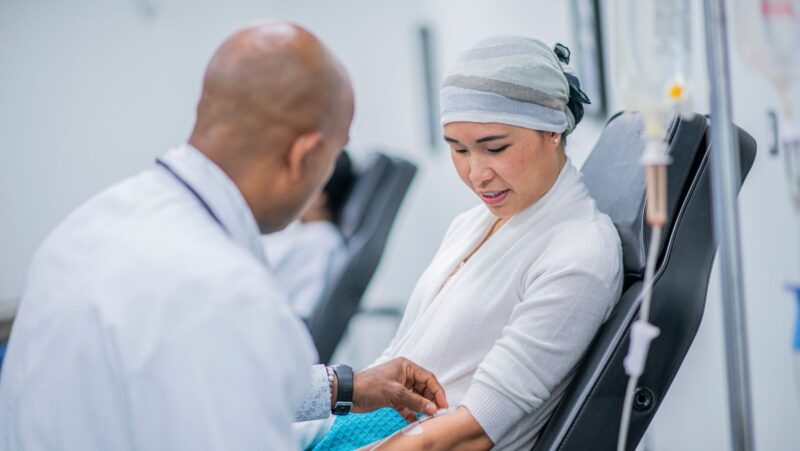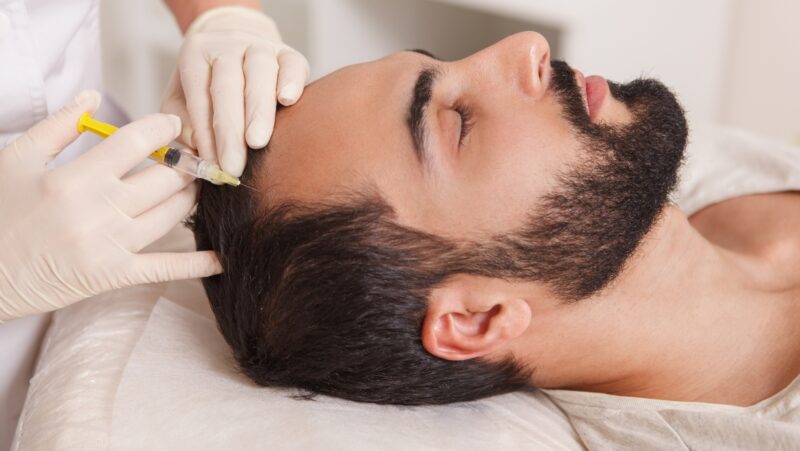
A Health Science degree provides a solid foundation for those looking to transition into nursing. While this interdisciplinary background offers valuable healthcare knowledge it doesn’t automatically qualify graduates for nursing positions. The path from Health Science to nursing requires additional education and specific certifications.
Many Health Science graduates find that their existing coursework aligns well with nursing prerequisites making the transition more streamlined than starting from scratch. With the growing demand for qualified nurses in healthcare facilities across the United States aspiring nurses with Health Science degrees can leverage their background to fast-track their nursing career through accelerated programs and specialized pathways.
How to Become a Nurse with a Health Science Degree
A Health Science degree creates a foundation for transitioning into nursing through specialized education pathways. The journey involves understanding key program differences and leveraging existing healthcare knowledge.
Key Differences Between Health Science and Nursing Degrees
Health Science and nursing degrees maintain distinct focuses in healthcare education. Health Science programs emphasize broad healthcare systems knowledge while nursing programs concentrate on direct patient care skills. Here are the primary distinctions:
- Clinical Hours: Nursing programs require 700-800 clinical hours compared to 100-200 in Health Science programs
- Skill Development: Nursing emphasizes hands-on patient care procedures while Health Science focuses on theoretical healthcare concepts
- Licensing Requirements: Nursing demands NCLEX-RN examination completion while Health Science has no standardized licensing
- Program Focus: Nursing targets specific patient care protocols while Health Science covers wider healthcare administration topics
- Medical Terminology: Understanding complex healthcare vocabulary aids in patient care documentation
- Anatomy Knowledge: Prior coursework in human biology supports nursing assessment skills
- Healthcare Ethics: Familiarity with medical ethics principles applies to nursing practice standards
- Research Methods: Experience in analyzing healthcare data improves evidence-based nursing practices
- Communication Skills: Training in healthcare communication strengthens patient interaction abilities
| Health Science Skills | Nursing Application Rate | Time Savings in Nursing Programs |
|---|---|---|
| Anatomy & Physiology | 85% | 1-2 semesters |
| Medical Terminology | 90% | 0.5-1 semester |
| Healthcare Ethics | 75% | 0.5 semester |
| Research Methods | 70% | 1 semester |
Prerequisites and Additional Education Requirements
Health Science graduates pursuing nursing careers must complete specific prerequisite courses and meet educational requirements to qualify for nursing programs, like the ut arlington online program. The transition involves targeted coursework and program selection based on previous academic background.
Required Nursing Courses and Credits
Health Science graduates transitioning to nursing complete 30-45 credits of prerequisite coursework including:
- Advanced Anatomy & Physiology (8 credits)
- Microbiology with Lab (4 credits)
- Chemistry with Lab (4 credits)
- Statistics (3 credits)
- Developmental Psychology (3 credits)
- Nutrition (3 credits)
Core nursing courses include:
- Foundations of Nursing Practice
- Health Assessment
- Pharmacology
- Medical-Surgical Nursing
- Maternal-Child Health
- Mental Health Nursing
- Community Health Nursing
Accelerated BSN Program Options
Accelerated BSN programs accommodate Health Science degree holders through:
- 12-18 month completion timeframes
- 50-60 credit specialized nursing curriculum
- 700-800 clinical practice hours
- Hybrid learning formats combining online coursework with in-person clinicals
- Minimum 3.0 GPA in previous coursework
- Completion of all prerequisites
- Current CPR certification
- Background check clearance
- Health screening documentation
- Professional liability insurance
| Program Component | Traditional BSN | Accelerated BSN |
|---|---|---|
| Program Length | 4 years | 12-18 months |
| Total Credits | 120-130 | 50-60 |
| Clinical Hours | 700-800 | 700-800 |
| Prerequisites | High school diploma | Bachelor’s degree |
Licensing and Certification Process
Health Science graduates transitioning to nursing must complete specific licensing requirements to practice as registered nurses. The process involves passing standardized examinations and meeting state-specific registration criteria.
NCLEX-RN Examination Requirements
The National Council Licensure Examination (NCLEX-RN) serves as the standardized test for nursing licensure in the United States. Candidates must:
- Register with Pearson VUE and pay the $200 examination fee
- Complete the computerized adaptive test within 6 hours
- Answer 75-145 questions across 4 major categories: safe care environment, health promotion, psychosocial integrity and physiological integrity
- Achieve a passing score determined by computerized adaptive testing logic
- Schedule a retake after 45 days if unsuccessful on the first attempt
- Submit official transcripts from accredited nursing programs
- Complete criminal background checks ($50-75 fee)
- Provide fingerprint documentation ($50 fee)
- Pay state licensing fees ($100-300)
- Verify current CPR certification
- Submit proof of completed clinical hours (700-800 minimum)
- Maintain continuing education credits for license renewal every 2-3 years
- Transfer licenses through the Nurse Licensure Compact (NLC) for practice across 39 participating states
| Licensing Component | Timeline | Average Cost |
|---|---|---|
| NCLEX-RN Exam | 6 hours | $200 |
| Background Check | 1-2 weeks | $50-75 |
| State License | 2-6 weeks | $100-300 |
| CPR Certification | 4-8 hours | $75-100 |
| License Renewal | Every 2-3 years | $60-140 |
Clinical Experience Requirements
Clinical experience forms a crucial component of nursing education for Health Science graduates transitioning to nursing careers. The hands-on training provides essential patient care skills under supervised conditions.
Required Clinical Hours
Nursing programs mandate 700-800 clinical hours across different healthcare settings to meet state board requirements. These hours include:
- Direct patient care: 400-450 hours in medical-surgical units
- Specialized rotations: 150-200 hours in pediatrics obstetrics mental health
- Community health: 100-150 hours in public health clinics outpatient facilities
- Leadership practice: 50 hours in management administrative roles
| Clinical Rotation Type | Required Hours | Percentage of Total |
|---|---|---|
| Direct Patient Care | 400-450 | 57% |
| Specialized Rotations | 150-200 | 22% |
| Community Health | 100-150 | 14% |
| Leadership Practice | 50 | 7% |
Finding Clinical Placement Opportunities
Healthcare facilities partner with nursing programs to provide clinical placements through established channels:
- Teaching hospitals: Partnerships with major medical centers offering diverse patient populations
- Community clinics: Rotations in ambulatory care settings focusing on preventive services
- Long-term care facilities: Experience with geriatric rehabilitation extended care
- Specialty units: Placements in intensive care emergency departments pediatric wards
- Simulation labs: Advanced training facilities with high-fidelity patient simulators
- Geographic location
- Facility availability
- Student preferences
- Program requirements
- Schedule compatibility
Career Transition Strategies
Career transition from Health Science to nursing demands strategic planning to maximize time, resources, and educational investments. The transition process involves careful consideration of program options and financial commitments.
Timeline and Cost Considerations
The transition timeline from Health Science to nursing varies based on program selection and prerequisite completion status.
| Program Type | Duration | Average Total Cost |
|---|---|---|
| Accelerated BSN | 12-18 months | $40,000-$80,000 |
| Traditional BSN | 24-36 months | $35,000-$70,000 |
| Direct Entry MSN | 18-24 months | $60,000-$100,000 |
Additional expenses include:
- Application fees: $50-$100 per program
- Textbooks materials: $1,000-$2,000 annually
- Clinical supplies uniforms: $300-$500
- Transportation clinical sites: $500-$1,500 annually
- Licensing exam fees: $200-$400
Choosing the Right Nursing Program
Program selection criteria focuses on key factors affecting educational success transition efficiency:
- Program accreditation status (CCNE ACEN)
- NCLEX-RN pass rates (minimum 85%)
- Clinical placement partnerships
- Campus location accessibility
- Class scheduling options
- Faculty credentials experience
- Student support services
- Graduate employment rates
- Transfer credit policies
- Financial aid availability
- Compare prerequisite transfer policies
- Review program completion rates
- Examine clinical rotation options
- Calculate total program costs
- Assess faculty-to-student ratios
Job Outlook and Career Advancement
The nursing profession offers extensive career opportunities for Health Science graduates who transition into nursing roles. The U.S. Bureau of Labor Statistics projects a 6% growth rate for registered nursing positions from 2022 to 2032.
Specialty Areas for Former Health Science Majors
Health Science graduates possess unique advantages in specialized nursing fields due to their broad healthcare foundation. Their expertise translates effectively into roles such as:
- Clinical Research Nursing: Applying research methodology skills to conduct medical trials
- Health Informatics Nursing: Utilizing healthcare systems knowledge to manage patient data
- Public Health Nursing: Leveraging population health expertise for community programs
- Education Nursing: Teaching future nurses using academic experience
- Quality Management: Implementing healthcare policy improvements
- Case Management: Coordinating patient care across multiple specialties
| Position Level | Average Annual Salary (USD) | Years of Experience |
|---|---|---|
| Entry-Level RN | $65,000 – $75,000 | 0-2 |
| Specialized RN | $80,000 – $95,000 | 3-5 |
| Advanced Practice RN | $110,000 – $130,000 | 5+ |
| Nurse Manager | $95,000 – $120,000 | 7+ |
Career advancement paths include:
- Obtaining specialty certifications in areas like oncology or critical care
- Pursuing advanced degrees (MSN DNP) for nurse practitioner roles
- Moving into administrative positions such as nurse manager or director
- Transitioning to healthcare consulting roles
- Developing expertise in emerging healthcare technologies
- Leading quality improvement initiatives in healthcare facilities
Each advancement opportunity typically requires additional certifications specific continuing education units professional development activities.
Strategic Pathway for Professionals
Transitioning from a Health Science degree to nursing offers a strategic pathway for professionals seeking to enhance their healthcare careers. The journey requires dedication commitment and careful planning but the strong foundation from a Health Science degree provides valuable advantages.
While additional education and clinical hours are necessary the investment can lead to rewarding career opportunities in various nursing specialties. With projected job growth accelerated program options and multiple advancement paths Health Science graduates are well-positioned to succeed in nursing careers.
Those ready to make the transition should carefully evaluate program options consider financial requirements and prepare for the necessary licensing steps. Their Health Science background combined with nursing credentials will create a unique skill set that’s highly valued in today’s healthcare environment.













